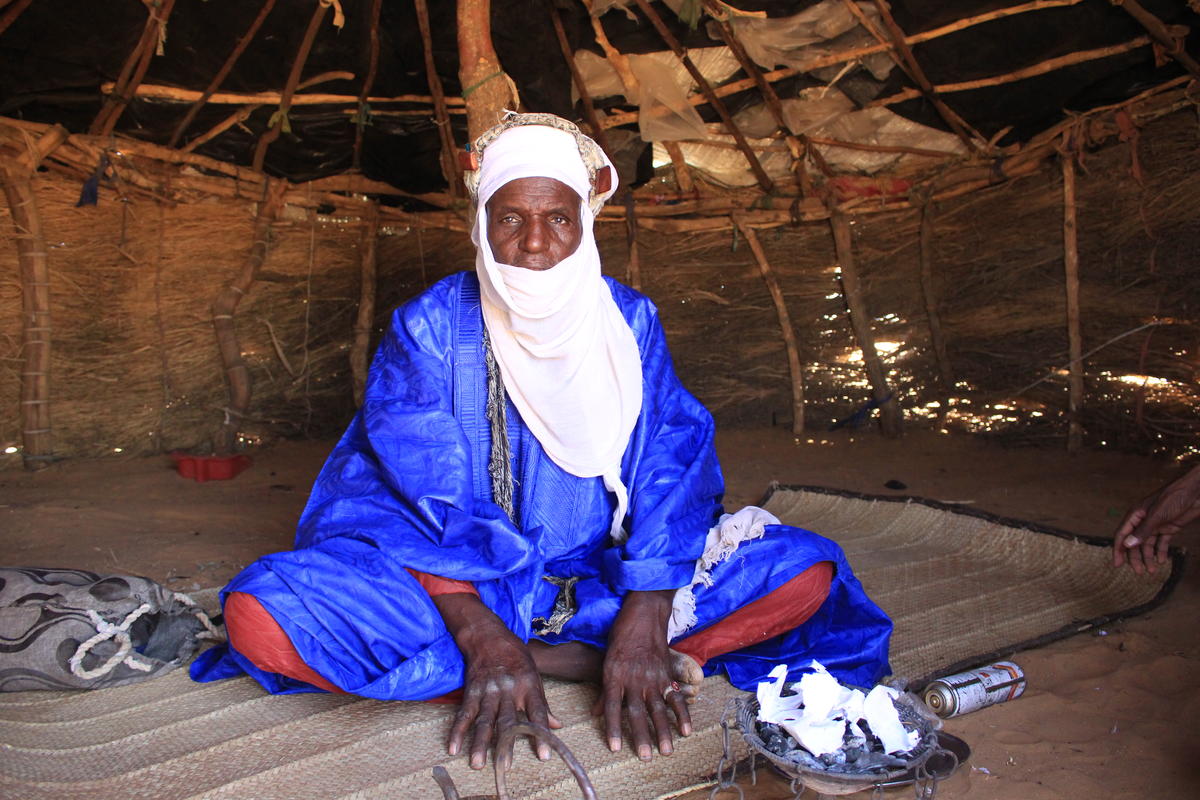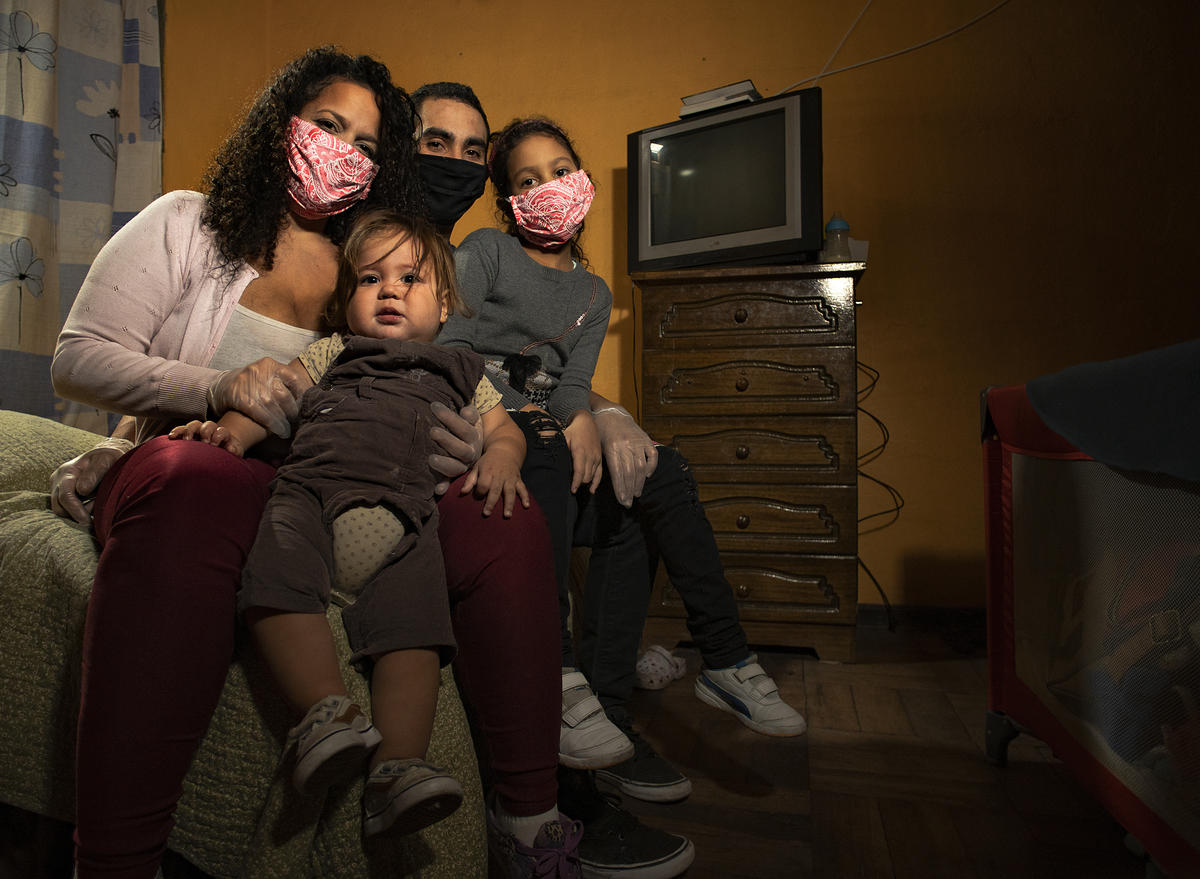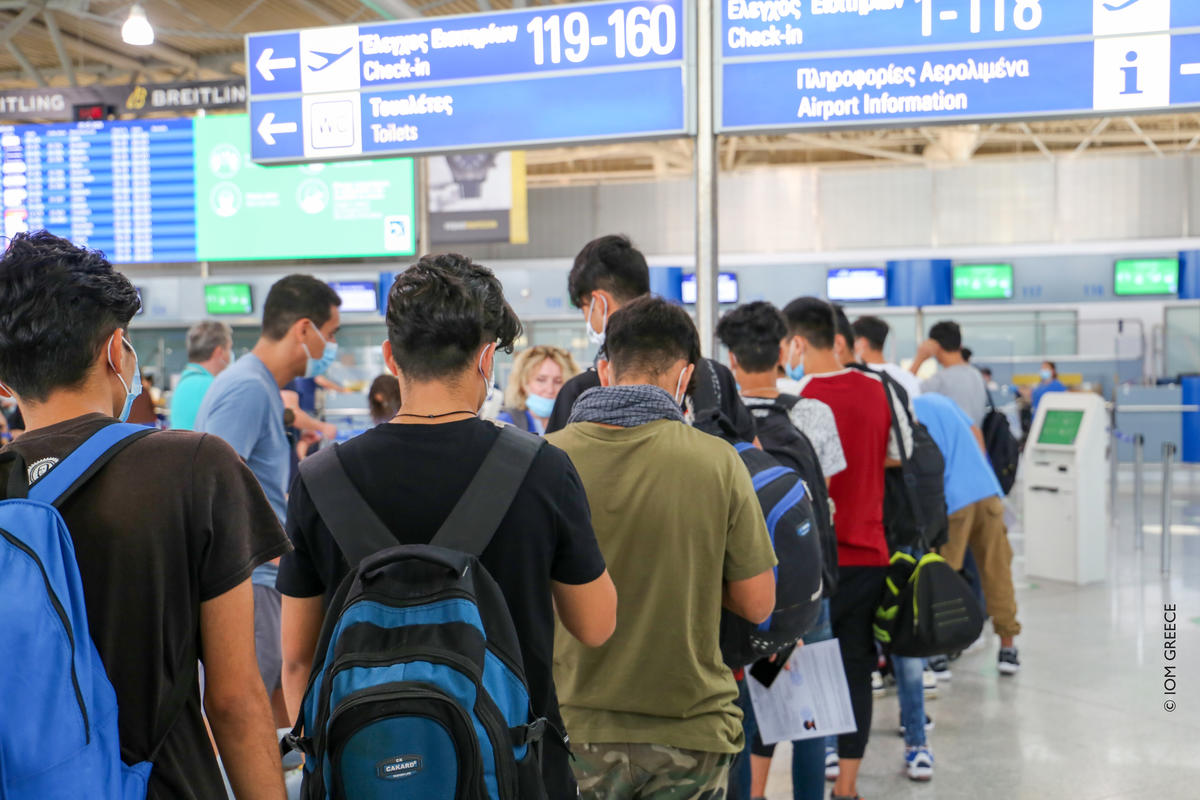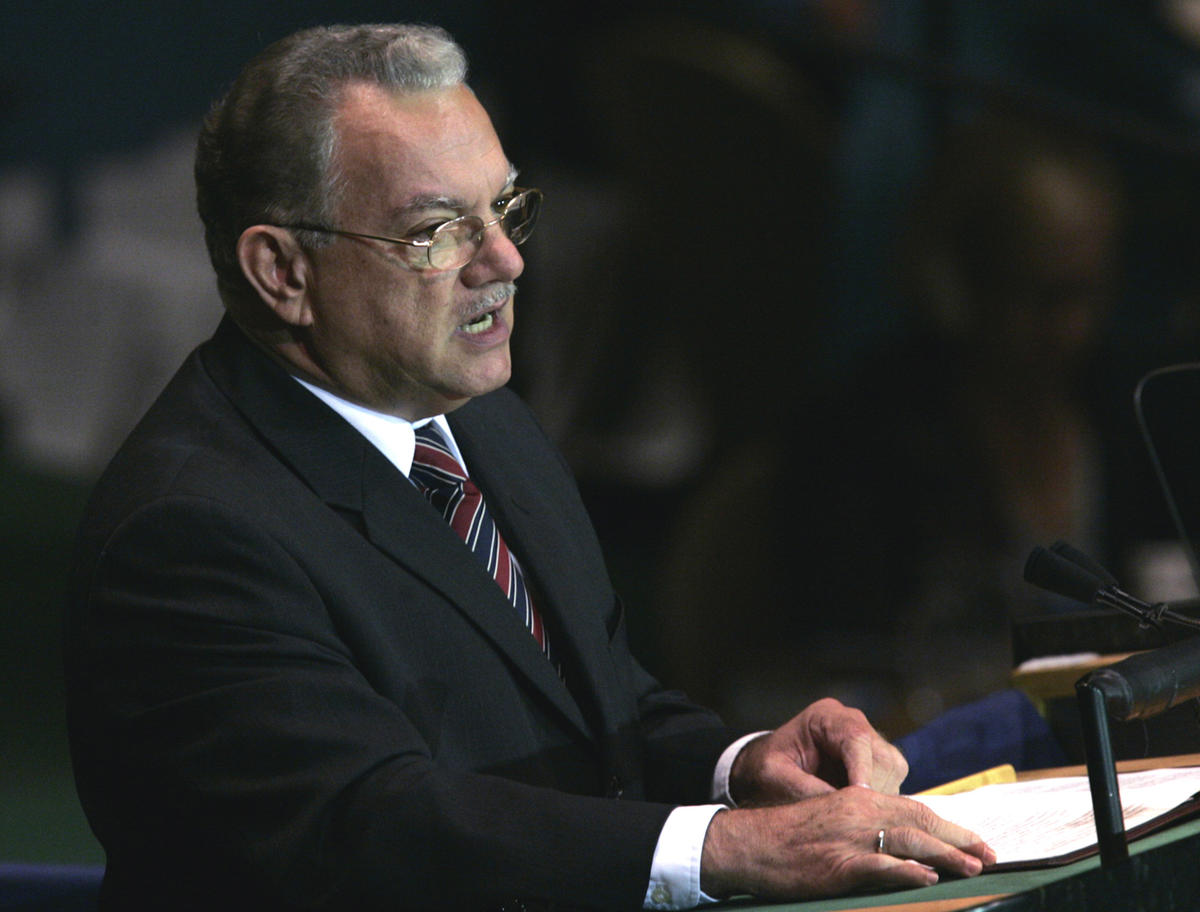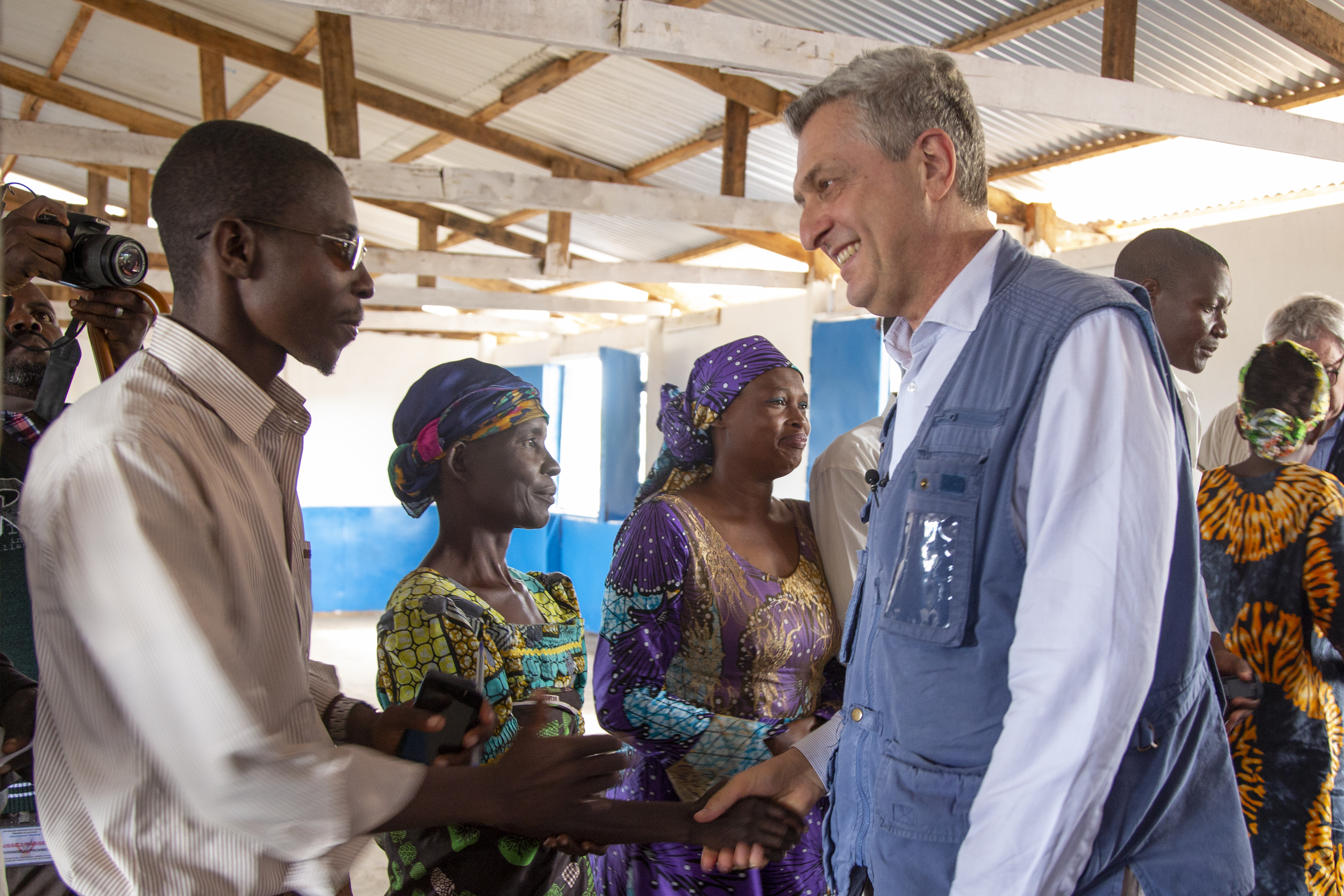UNHCR concerned over looming tragedies as sailing season starts in Bay of Bengal
UNHCR concerned over looming tragedies as sailing season starts in Bay of Bengal
In recent days UNHCR has received worrying reports that more people are leaving on smugglers' boats from the Bay of Bengal. This could signal the start of the annual sailing season - a deadly time when thousands of desperate people from Myanmar's Rakhine state risk their lives on rickety boats to find safety and stability elsewhere.
According to UNHCR's sources, more than 1,500 people boarded boats in northern Rakhine state over the course of four days last week.
There have been reports of passengers drowning off the coast of Rakhine state last weekend. UNHCR has been unable to verify the conflicting information so far. We are seeking details from the authorities.
The number of boat departures from the Bay of Bengal has risen dramatically since June 2012, when inter-communal violence erupted in Rakhine state. For the Rohingya in particular, leaving by boat is sometimes the only way for them to flee Myanmar. Without citizenship or valid travel documents, they face difficulties in crossing overland due to a fear of arrest and detention by Myanmar authorities.
It is hard to know the exact number of boat departures due to the clandestine nature of these movements. Unverified reports suggest that from June to December last year, more than 14,000 people left on boats from Myanmar and Bangladesh. They were joined by over 24,000 people in the first eight months of this year. The majority are believed to be Rohingya from Rakhine state, with some Bangladeshis among them. Over 400 have died or gone missing making the journey so far this year. Those who survive often land in countries like Thailand, Indonesia and Malaysia, but specific numbers of these irregular arrivals are unknown.
More than a year after the first wave of inter-communal violence erupted in Rakhine state, some 140,000 people remain internally displaced. Muslim communities in northern Rakhine State, especially the Rohingya, struggle with limitations on freedom of movement, access to basic services and livelihood, protection from extortion and forced labor, and are sometimes driven to desperation.
UNHCR fears that as the rainy season comes to an end and sailing season starts in earnest, more people could feel compelled to leave by boat, subjecting themselves to exploitation by smugglers.
To stem this outflow, UNHCR believes the Myanmar government and international community need to redouble efforts to promote reconciliation and economic development in Rakhine state for the benefit of all communities, and pursue practical measures to ensure basic rights so that the Rohingya can lead normal lives where they are.
In parallel, UNHCR continues to advocate for States in the region to step up actions to prevent such tragedies, in particular by strengthening regional cooperation and ensuring that the humanitarian and protection needs of all people moving irregularly are properly met.
We believe that countries affected by such movements should adopt a comprehensive, harmonized approach that is underpinned by strengthened coordination and cooperation on search and rescue at sea, interceptions, disembarkation, assistance and identification of outcomes and solutions.
UNHCR is supporting this approach through various regional initiatives. We are encouraged that States in the region have expressed their commitment to cooperation by adopting a Regional Cooperation Framework supported by the Bali Process. We also welcome the outcomes of a Special Conference on Irregular Movement of Persons, hosted by the Government of Indonesia in August 2013. The resulting Jakarta Declaration highlighted the need to strengthen cooperation among affected States to manage irregular maritime movements including through the development of a protection-sensitive regional approach.
We appeal to all staactes in the region to allow persons in need of protection to disembark and assist them with finding solutions.
For more information on this topic, please contact:
- In Myanmar, Medea Savary on mobile +95 944 802 7892
- In Bangkok (Regional), Vivian Tan on mobile +66 818 270 280
- In Geneva, Babar Baloch, on mobile, +41 79 557 9106

